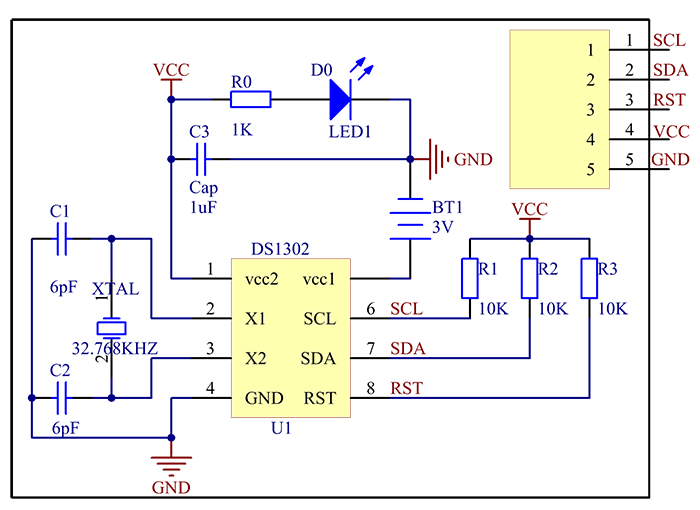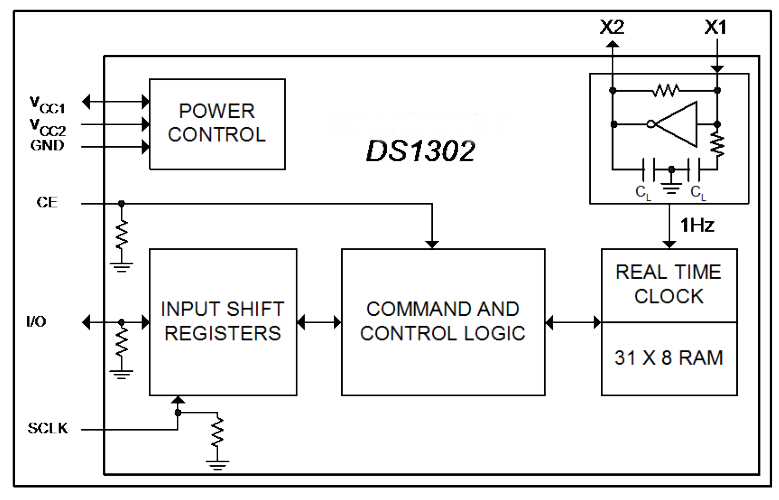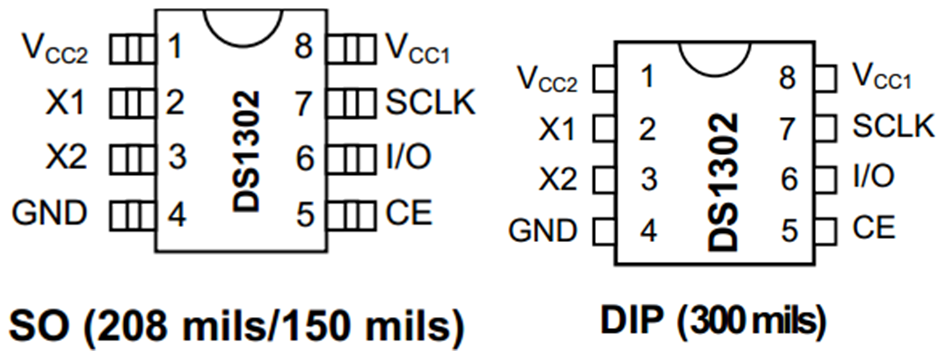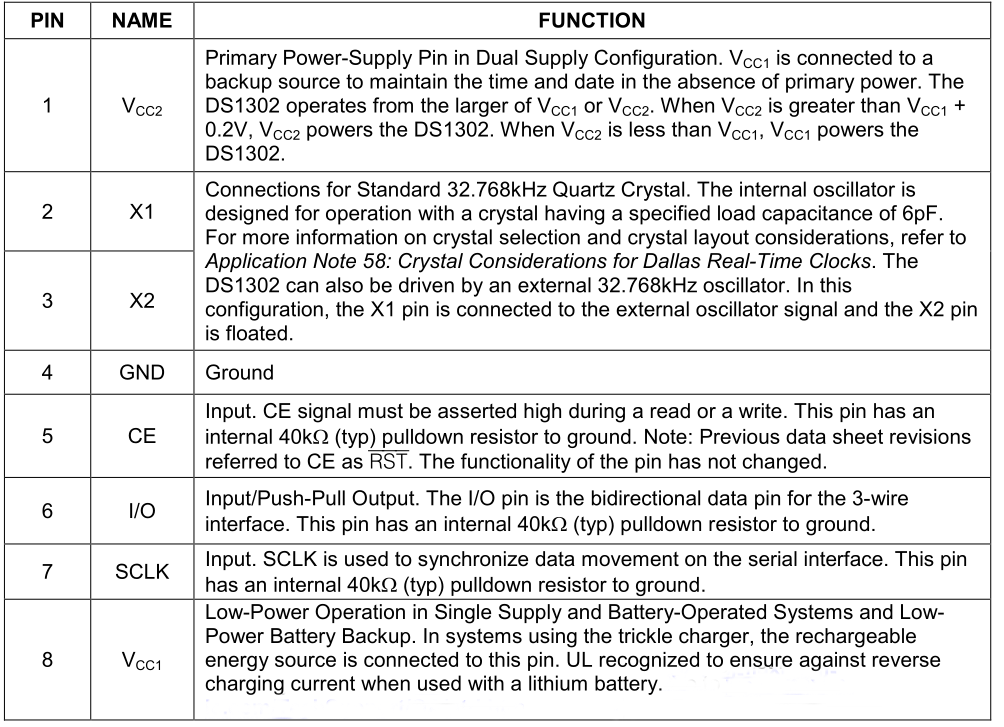Difference between revisions of "RTC-DS1302 Module"
(→Resource) |
|||
| (6 intermediate revisions by the same user not shown) | |||
| Line 23: | Line 23: | ||
*Optional Industrial Temperature Range: -40°C to +85°C Supports Operation in a Wide Range of Applications | *Optional Industrial Temperature Range: -40°C to +85°C Supports Operation in a Wide Range of Applications | ||
=='''Resource'''== | =='''Resource'''== | ||
| − | [http://www. | + | [http://wiki.sunfounder.cc/images/8/8e/DS1302_datasheet.pdf DS1302_datasheet][[File:PDF.jpg]]<br> |
| + | [https://www.sunfounder.com/learn/Sensor-Kit-v2-0-for-Arduino/lesson-8-real-time-clock-module-sensor-kit-v2-0-for-arduino.html Test Experiment for Arduino][[File:LINK.jpg]]<br> | ||
| + | [https://www.sunfounder.com/learn/sensor-kit-v2-0-for-raspberry-pi-b-plus/lesson-33-rtc-ds1302-sensor-kit-v2-0-for-b-plus.html Test Experiment for Raspberry Pi][[File:LINK.jpg]] | ||
Latest revision as of 06:48, 20 March 2017
Introduction
DS1302 is a trickle charging clock chip, launched by DALLAS in America. With a built-in real-time clock/calendar and a 31-byte static RAM, it can communicate with MCU through simple serial interfaces. The real-time clock/calendar circuit provides information about second, minute, hour, day, week, month, and year. DS1302 can automatically adjust the number of days per month and days in leap year. You can determine to use a 24-hour or 12-hour system by AM/PM selection. It can simply communicate with MCU in synchronous serial way and only needs to use three interface cables: Reset (RST) cable, I/O data (SDA) cable and serial clock (SCL) cable.
The schematic diagram of the module:

Block Diagram
Pin Function
Features
- Completely Manages All Timekeeping Functions
- Real-Time Clock Counts Seconds,Minutes, Hours, Date of the Month, Month,Day of the Week,and Year with Leap-Year Compensation Valid Up to 2100
- 31 x 8 Battery-Backed General-Purpose RAM
- Simple Serial Port Interfaces to Most Microcontrollers
- Simple 3-Wire Interface
- TTL-Compatible (VCC = 5V)
- Single-Byte or Multiple-Byte (Burst Mode) Data Transfer for Read or Write of Clock or RAM Data
- Low Power Operation Extends Battery Backup Run Time
- 2.0V to 5.5V Full Operation
- Uses Less Than 300nA at 2.0V
- 8-Pin DIP and 8-Pin SO Minimizes Required Space
- Optional Industrial Temperature Range: -40°C to +85°C Supports Operation in a Wide Range of Applications
Resource
DS1302_datasheet![]()
Test Experiment for Arduino![]()
Test Experiment for Raspberry Pi![]()


